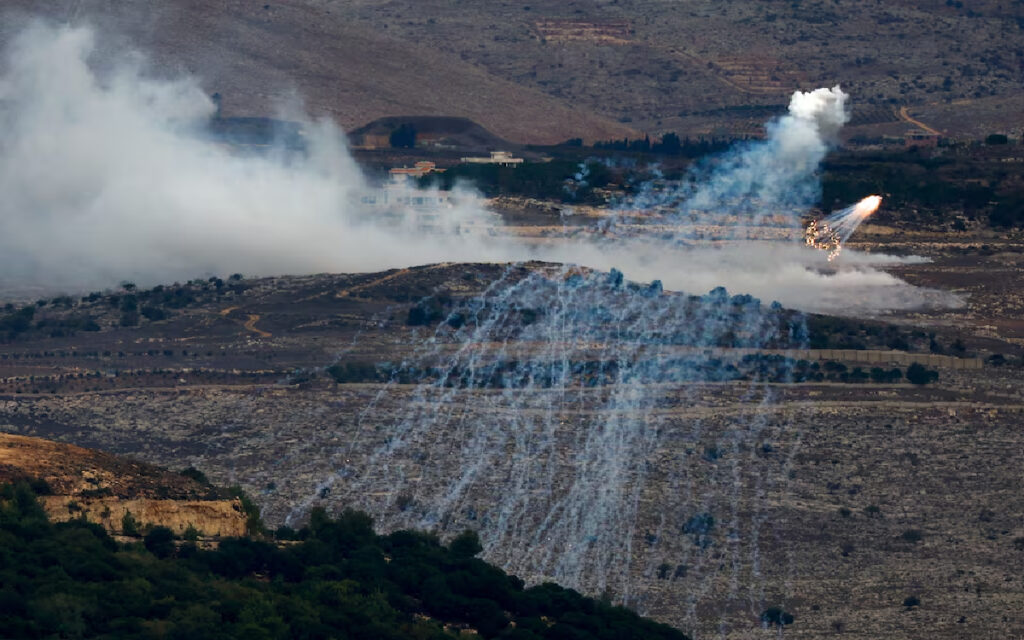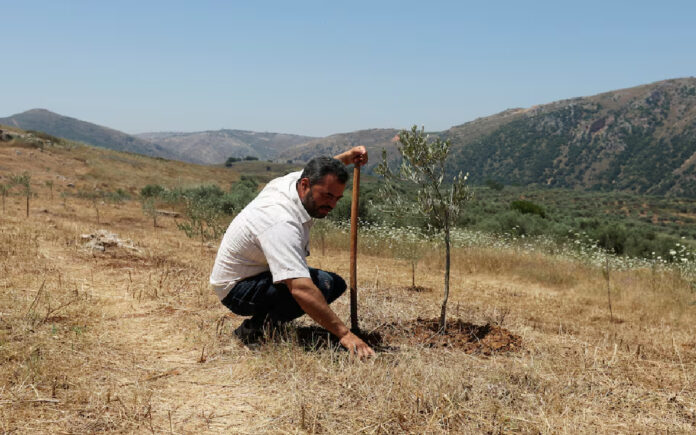Qlayaa: In the fields near Qlayaa, southern Lebanon, Zakaria Farah recently ventured not to plant but to gather soil samples amidst distant shelling. Concerned about potential contamination from Israeli white phosphorus attacks, he sent these samples to the American University of Beirut (AUB) for testing.
“I want to know what I’m feeding my son, what I’m feeding my wife, what I’m eating,” Farah expressed to Reuters in June. “We’re afraid for the future of our land. What can we eat? What can we drink?”
Farah, alongside numerous farmers in the region, fears that his land has been tainted by Israeli military actions since October, coinciding with exchanges between Israel and Hezbollah and the Gaza conflict.
According to the Lebanese National Council for Scientific Research, southern Lebanon has been subjected to 175 Israeli attacks employing white phosphorus, leading to fires that have ravaged over 600 hectares (1,480 acres) of farmland.

While white phosphorus is legally used for specific military purposes such as creating smoke screens, its deployment in civilian areas is restricted due to its severe burn potential and capacity to ignite fires.
Lebanon abides by international protocols that prohibit such use, a stance that differs from Israel’s position. Human Rights Watch has documented instances of white phosphorus use across 17 municipalities in southern Lebanon, condemning attacks conducted over populated areas.
Responding to inquiries, the Israeli military denies employing white phosphorus in primary smoke shells, asserting adherence to lawful warfare practices.
Also Read | Humanitarian Crisis Unfolds at Dar Mariam Mission Amidst Sudan’s War
A UN Development Programme report underscores the toxicity of white phosphorus and its detrimental impact on health, safety, and the environment, affecting soil quality in conflict zones by disseminating heavy metals and toxic compounds.
Farmers like Farah and Oday Abou Sari from Dhayra estimate losses up to $7,000 each due to interrupted planting seasons and the destruction of wheat, tobacco, lentils, and other greens, as well as damage to livestock feed and irrigation infrastructure.
To assess the effects on soil, farmers gather samples for analysis by Dr. Rami Zurayk at AUB, utilizing rigorous testing methods to measure phosphorus concentration and its persistence compared to unaffected samples.
Zurayk and his team, including doctoral student Leen Dirani, stress the necessity for more samples to achieve conclusive findings amidst ongoing shelling, which restricts farmers’ access to affected areas.
Also Read | China Dominates Generative AI Patent Race, UN Report Reveals
Green Southerners, an ecological group, documents incidents of white phosphorus through video evidence, alleging extensive environmental damage akin to ecocide.
Lebanon’s ministries collaborate with UNDP to evaluate and document environmental impacts, potentially escalating the issue to the UN Security Council as a case of ecocide.
“This is an act of ecocide, and we’ll take it to the UN Security Council,” asserted Lebanese Environment Minister Nasser Yassin in response to the accusations.
The Israeli military dismisses allegations of ecocide as unfounded, maintaining that its actions align with international legal standards.



